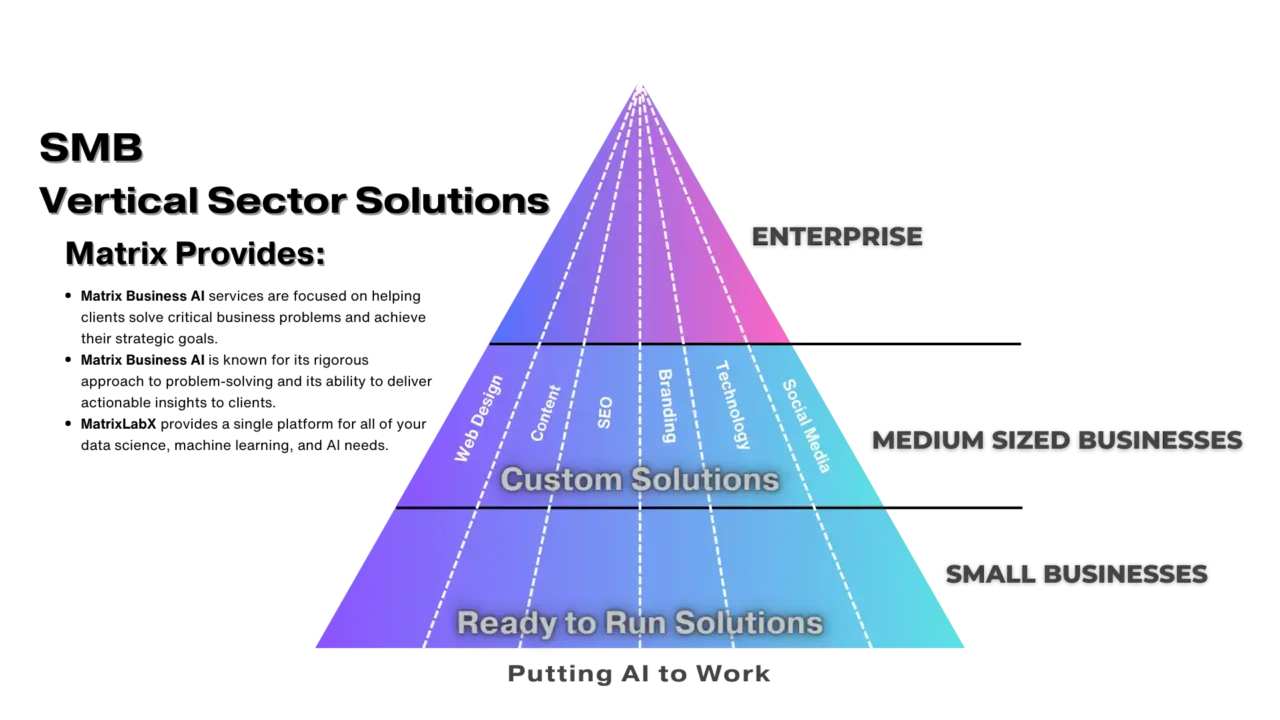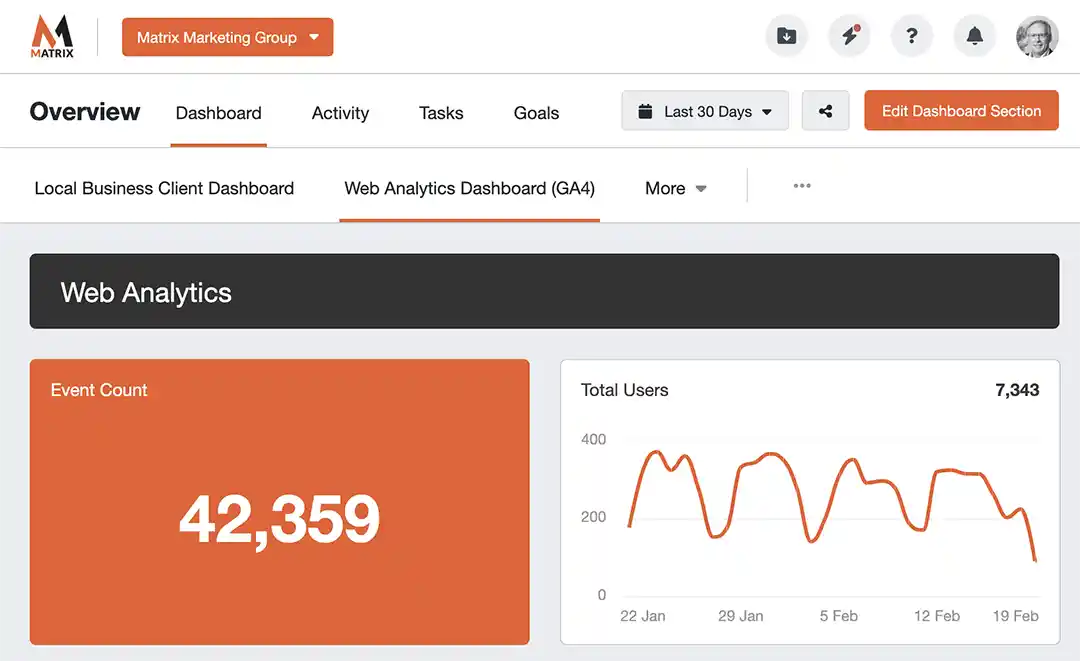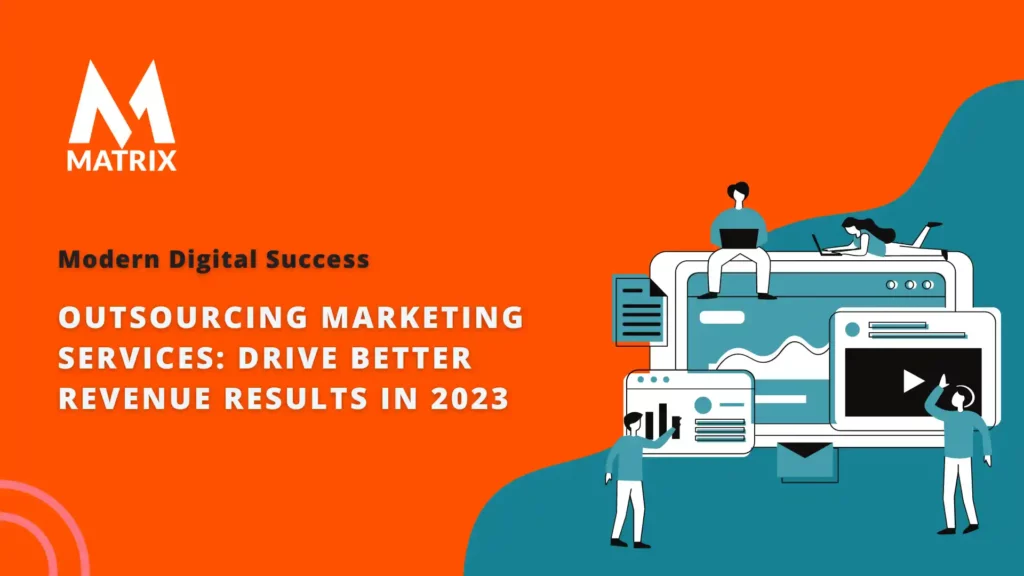Lead Multichannel Marketing for Sustainable Growth
Learn About Lead Multichannel Marketing for Resilient Growth.
As a business leader, scaling your operations is one of the greatest challenges you might face. Whether you need more resources, operational inefficiencies, or expertise to take your business to the next level, the issue of scalability is an all-too-familiar struggle.
If left unresolved, this issue could hamper your business’s growth. Failing to scale effectively can lead to missed opportunities, frustrated customers, overworked employees, and stagnation in an increasingly competitive marketplace.
Consider the case of Lisa, the CEO of a promising tech start-up. Despite having a unique, value-driven product and a dedicated team, Lisa needed help to scale her operations to meet the growing demand. Internal inefficiencies and an increasing customer base led to missed deadlines, employee burnout, and customer dissatisfaction.
Lisa recognized the need for scalable solutions, so she contacted us. With our expertise, we evaluated her business operations, identified barriers to scalability, and implemented strategic solutions.
We streamlined her processes, improved operational efficiency, and devised a sustainable growth plan. Within months, Lisa noticed a significant transformation; the flow was smooth, employee morale was high, and most importantly, customer satisfaction was at its peak.
Today, we offer Lisa’s transformation as an example of what our scalability solutions can achieve. We can help identify your barriers to growth, streamline your operations, and implement effective scalability strategies that will equip your business to handle increased demand and facilitate growth.
If you’re grappling with similar obstacles to scaling your operations, we urge you not to wait until these challenges escalate.
Contact us today—we’re ready to analyze your current situation and devise a scalable solution that fosters business growth, increases efficiency, and empowers your team. Let us help you transform your scalability issues into scalability success.
Embracing Multichannel Marketing for Resilient Growth: A Guide for Businesses Struggling to Scale
In today’s dynamic and increasingly digital marketplace, businesses must leverage multiple channels to reach their audience effectively. This is where multichannel marketing comes into play.
However, integrating multichannel marketing can seem daunting for businesses finding it hard to scale. This article sheds light on how businesses can effectively lead multichannel marketing strategies for resilient growth, even when scaling seems challenging.

Understanding Multichannel Marketing
Imagine Customers Everywhere You Look: The Power of Multichannel Marketing
Reaching the Right Audience, Everywhere They Are: In today’s digital age, customers don’t stick to one channel. They might browse social media, check email promotions, and even watch explainer videos before making a purchase. Multichannel marketing allows you to be present across these various channels, creating a cohesive brand experience that follows your audience wherever they go.
Boosting ROI Through Engagement: Marketing efforts often struggle to track a clear return on investment (ROI). Multichannel marketing tackles this by providing multiple touchpoints. By engaging customers across different channels, you can measure the effectiveness of each one and optimize your campaigns for maximum impact, leading to a more measurable and improved ROI.
Multichannel marketing is interacting with customers via various direct and indirect communication channels.
This could include websites, retail stores, email, direct mail, mobile, social media, and more. The goal is to enable customers to act in their chosen channel.
The Challenge of Scaling
Scaling a business requires handling an increasing number of customers, orders, and operational tasks without compromising performance or revenue.
However, many businesses need more expertise to scale due to limited resources, lack of expertise, or operational inefficiencies. This struggle can be further amplified when implementing a multichannel marketing strategy.
Scaling Marketing: From Hurdle to Opportunity with AI
The Scaling Struggle: Many companies hit a wall when trying to expand their marketing efforts. Reaching new audiences, managing multiple channels, and analyzing data – it can all become overwhelming. Traditional methods often lack the agility and reach needed for true growth.
AI: The Marketing Multiplier: Artificial intelligence (AI) is revolutionizing how companies scale their marketing. AI can automate repetitive tasks like ad targeting and campaign management, freeing up your team to focus on strategic initiatives. Additionally, AI analyzes vast amounts of customer data to identify trends and predict behavior, allowing you to personalize campaigns for maximum impact.
Why AI Makes a Difference: AI doesn’t just automate tasks; it unlocks a deeper understanding of your audience. By leveraging AI, you can reach more qualified leads, personalize messaging, and optimize campaigns in real-time – all critical factors for successful marketing at scale. With AI as your partner, you can overcome the scaling challenge and unlock significant growth opportunities.
Leading Multichannel Marketing for Resilient Growth

Despite the challenges, if implemented correctly, multichannel marketing can facilitate scalability and drive resilient growth.
Integrated Marketing Approach
An integrated approach ensures your brand messaging is consistent across all channels, creating a seamless customer experience.
It allows you to reach a wider audience, improve customer engagement, and increase sales, which are key for scalable growth. AI?
A step-by-step guide on how a technology company can implement an Integrated Marketing Approach (IMA):
1. Define Your Goals and Target Audience
- Overall Goals: What do you want your marketing efforts to achieve? Be specific (e.g., increased brand awareness, lead generation, sales conversions).
- Target Audience: Create detailed buyer personas. Understand their demographics, pain points, interests, and where they spend time online.
2. Select Your Marketing Channels
- Align with Audience: Choose the channels your target audience uses most frequently. This might include:
- Website/Blog
- Social Media (LinkedIn, Twitter, Facebook, Instagram, etc.)
- Email Marketing
- Content Marketing (whitepapers, case studies, webinars)
- Paid Advertising (search engine ads, display ads)
- Public Relations (press releases, media outreach)
- Events (trade shows, industry conferences)
3. Craft a Consistent Message
- Brand Voice: Define your company’s unique tone and personality.
- Key Messaging: Develop concise, compelling statements that summarize your product/service benefits and address customer needs.
4. Develop a Content Strategy
- Variety Matters: Produce different content formats (blogs, videos, infographics, etc.) to cater to various preferences across your chosen channels.
- Value Focus: Provide educational, helpful content that aligns with your target audience’s interests and pain points.
5. Create a Campaign Calendar
- Organization is Key: Schedule content, promotions, and launches across your channels to maintain a consistent flow.
- Flexibility: Leave room for timely adjustments based on current events or industry trends.
6. Appoint Channel Managers/Owners
- Accountability: Assign team members or agencies to specific channels for optimal focus and expertise.
- Collaboration: Ensure regular communication between channel managers to guarantee messaging consistency.
7. Utilize Analytics and Metrics
- Track Performance: Set up tracking metrics (website traffic, social engagement, conversion rates) for each channel.
- Data-Driven Decisions: Regularly analyze data to identify what’s working well and areas for improvement.
8. Iterate and Optimize
- Don’t Be Static: Integrated marketing is an ongoing process. Adjust your strategy, messaging, and channel mix based on data insights and performance results.
Important Considerations:
- Budget: Allocate sufficient resources for content creation, channel management, and technology tools.
- Technology Tools: Implement marketing automation platforms and analytics dashboards to streamline execution and data tracking.
Leveraging Automation
Marketing automation tools can be a game-changer for businesses struggling to scale.
They can help manage your multichannel marketing campaigns more effectively, reducing manual tasks and increasing efficiency.
Automating Your Way to Marketing Success: How Zapier Can Be Your Secret Weapon
The Marketing Time Crunch: You wear many hats as a CMO.
Juggling strategy, budget allocation, and campaign execution can leave little time for manual tasks. This is where Zapier comes in – a powerful automation tool designed to streamline your marketing workflow.
Zapier 101: Imagine connecting your favorite marketing apps (like email marketing platforms, social media schedulers, and CRM systems) into a seamless symphony.
Zapier acts as the conductor, triggering automated actions based on pre-defined triggers. For example, a new lead captured on your website can automatically trigger an email welcome series, a social media post announcing the new lead, and an update within your CRM.

Better Search Ranking
Better Search Ranking in 90 days
SEO is extremely important for companies to rank well in search engines because it is the primary way that people find information online.
Boosting Efficiency with Automation: Here are just a few ways Zapier can automate your marketing tasks:
- Lead Management: Automate lead nurturing by adding new website contacts to your email list and CRM.
- Social Media Scheduling: Schedule social media posts across various platforms in advance, saving you time and ensuring consistent brand messaging.
- Campaign Reporting: Automate data collection from different channels into a central dashboard for easy performance analysis.
- Personalized Communication: Trigger personalized email campaigns based on customer behavior or website activity.
The ROI of Automation: Leveraging automation with Zapier frees up your team’s valuable time for strategic thinking and creative endeavors. You’ll see benefits like:
- Increased Productivity: Less time spent on repetitive tasks means more time for high-impact initiatives.
- Improved Accuracy: Automated tasks eliminate human error, ensuring data consistency and campaign effectiveness.
- Enhanced Customer Experience: Timely, personalized communication fosters stronger customer relationships.
Ready to Get Started? Zapier offers a free plan with a generous number of “Zaps” (automated workflows). Explore their vast library of pre-built Zaps specifically designed for popular marketing tools. With a little set-up, you can unlock the power of automation and transform your marketing team into a well-oiled machine.
Personalization
Personalized marketing is vital in a multichannel strategy. Customer data can help you tailor your marketing messages based on individual preferences and behaviors, improving engagement and conversion rates.
Performance Tracking
Performance tracking across all channels helps identify what’s working and what’s not. This data-driven approach allows for informed decision-making and strategic adjustments, driving improved results and scalability.
The Role of Businesses in Multichannel Marketing

As a business leader, your role in leading multichannel marketing is crucial. By embracing an integrated approach, leveraging automation, personalizing your marketing efforts, and tracking performance, you can overcome scalability challenges and drive resilient growth.
The Power of Multichannel Marketing for Scalable, Resilient Growth
Multichannel marketing offers a powerful solution for businesses struggling to scale. Despite the challenges, businesses can effectively lead multichannel marketing efforts to drive resilient growth with the right strategies and tools.
Embracing an integrated approach, leveraging automation, personalizing marketing efforts, and tracking performance can improve scalability and foster growth. As a business leader, your role in implementing these strategies is pivotal.
In today’s digital world, necessaryarketing is not just an option; it’s a necessity for scalable, resilient growth. By leveraging multiple channels, businesses can reach a wider audience, improve engagement, drive sales, and ultimately achieve scalable growth.
The journey to scaling might seem daunting, but resilient growth is within reach with the right multichannel marketing strategies.
Matrix Marketing Group: Your Strategic Partner for Scalable Solutions
Scaling a business is a complex task that demands expertise, strategic planning, and efficient execution. Matrix Marketing Group, a distinguished SEO agency, is a reliable partner in your journey toward business growth.
Customized Scaling Solutions:
Matrix Marketing Group excels in providing tailored scaling solutions. Their strategies are designed based on your business’s unique needs, objectives, and challenges, ensuring sustainable and well-paced growth.
Data-driven Strategy:
The team at Matrix Marketing Group uses a data-driven approach to formulate effective scaling solutions. By harnessing the power of data analytics, they help you make informed decisions, predict market trends, and streamline your operations for growth.
Experienced Team:
The Matrix Marketing Group team comprises seasoned SEO specialists, strategists, and digital marketers. Their collective expertise assures you of a comprehensive approach to scaling your business.
Consistent Results:
Matrix Marketing Group is committed to delivering measurable and consistent results. They devise effective scaling strategies and closely monitor their performance to ensure they are driving the desired outcomes.
Conclusion and Summary:
With its customized scaling solutions, data-driven strategy, experienced team, and consistent results, Matrix Marketing Group offers a comprehensive solution for businesses looking to scale. Their approach ensures that your growth is sustainable, efficient, and aligned with your business objectives.
You can leverage their expertise and innovative strategies to grow your business by partnering with Matrix Marketing Group. They help you navigate the complexities of scaling, ensuring that your business is well-positioned for success.
In conclusion, Matrix Marketing Group is more than an SEO agency. They are strategic partners who can support your business’s growth journey by providing effective and sustainable scaling solutions. Their commitment to delivering results, expertise, and innovative approach makes them an ideal partner for any business looking to scale.




